9 Tips for Managing Food Allergies in Kids

- Nine foods are responsible for about 90% of allergic reactions to food.
- Food allergies are different from food intolerances.
- Most children outgrow milk and egg allergies.
- Children with food allergies should always have an epinephrine auto-injector (EpiPen) nearby for emergencies.
Managing your children’s diet can be stressful for many parents. Making sure they eat enough fruits and vegetables, avoid harmful chemicals, and don’t overdo it on sugar can feel like a full-time job. If your child has food allergies, meeting your child’s dietary needs can be even trickier.
Fortunately, food allergies in children are not extremely common, and less than 10 foods are responsible for most allergic reactions to food. However, if your child does have a food allergy, exposure to that food can be life-threatening. To keep your little ones safe, use these 9 tips for managing food allergies in kids.
Food Allergies in Kids: What Parents Should Know
About 6–8% of children under the age of 5 suffer from food allergies, and many of these children will outgrow their allergy by the time they reach adulthood.
Foods that most commonly cause allergic reactions in children include:
- Milk
- Eggs
- Soy
- Wheat
- Tree Nuts
- Peanuts
- Fish
- Shellfish
- Sesame
Allergies to tree nuts, peanuts, and shellfish tend to cause more severe allergic reactions. An allergic reaction happens when your child’s immune system decides that a certain substance is unsafe.
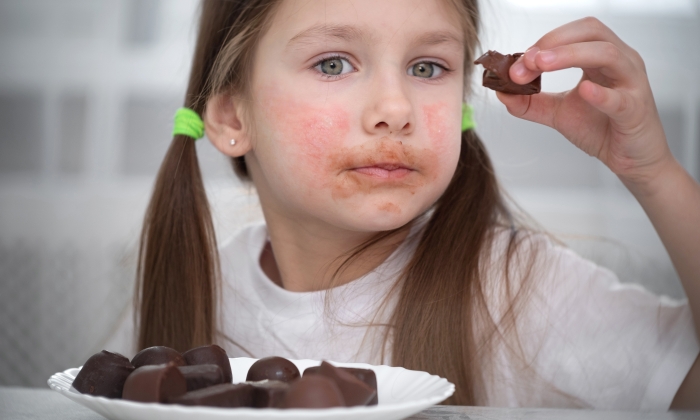
What Causes Food Allergies in Children?
According to the Rheumatology and Allergy Institute of Connecticut, scientists are not entirely sure what causes a child to have an allergic reaction to certain foods. However, allergic symptoms do seem to run in families. If you or someone in your family is allergic to a particular food, there’s a higher chance that your child will be too.
Your child is also more likely to have a food allergy if they have a health history of other allergic reactions. Since allergies are caused by an overactive immune system, highly allergic children tend to have problems with multiple foods.
How To Tell if Your Child Has a Food Allergy
If you have never had an allergic reaction yourself, it can be difficult to know for sure if your child has food allergies. While allergies to pollen can cause sneezing and runny nose, there are a different set of symptoms to watch for with most food allergies.
Allergic Symptoms
Allergic symptoms can range from mild to severe.
|
|
A severe allergic reaction, also known as food allergy anaphylaxis, is a medical emergency. If your child experiences signs of a severe reaction like trouble breathing or dizziness, call for emergency medical care right away.
Allergy VS Food Intolerance
It’s easy to confuse an allergic reaction with a food intolerance. Food intolerances are generally not life threatening, and symptoms of food intolerance are usually limited to gastrointestinal symptoms like vomiting, diarrhea, stomach cramps, and nausea. Both allergies and food intolerance require some creative meal ideas.
Medical Diagnosis
To know for sure whether or not your little one has a food allergy, your child’s healthcare provider can perform a few allergy tests. They will ask about your child’s health history and can try a blood test or food sensitivity test to get an accurate diagnosis.
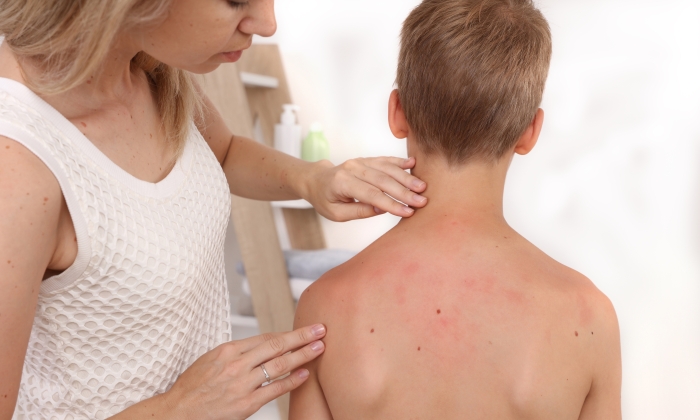
How Are Food Allergies in Kids Treated?
If your child has a milk or peanut allergy, chances are high that they will eventually outgrow it. Unfortunately, the Journal of Allergy and Clinical Immunology reports that there are no known treatments for eliminating a food allergy. Avoidance is the best way to prevent reactions.
During a mild reaction, a food allergy treated with benadryl will typically get better in a few hours. For a more serious reaction, your child may need a drug called epinephrine.
Any shortness of breath, swelling of the mouth or face, or wheezing will probably require treatment with epinephrine through an EpiPen or an emergency room visit.
9 Helpful Tips for Managing Your Child’s Food Allergies
1. Introduce Risky Foods Early
While it sounds scary, introducing allergy-causing foods to children early on is associated with fewer food allergies in children. The National Institute of Allergy and Infectious Diseases recommends introducing foods like peanut butter and eggs to babies around 6 months of age to prevent food allergy from developing.
2. Give Your Child a Food Allergy Card
As your child starts spending more time away from you, give them an allergy card or medical alert bracelet that can let strangers or emergency medical providers know about their allergy. That way, your child can receive the correct treatment in an emergency.
3. Read Labels Carefully
The Food and Drug Administration requires that all products containing certain food ingredients be labeled with allergy warnings.
Some foods may come in contact with allergenic foods that are made in the same factory. Labels should tell you if there is any risk of contamination.
4. Speak Up at Restaurants
When you take your family out to a restaurant, be clear with the staff about your child’s food allergy. You may even want to call ahead to find out how the food is prepared and if there are any precautions the restaurant can take to keep your little one safe.
5. Avoid Family Style Service
For severe allergies, cross-contamination is a huge risk. If your child has a peanut allergy and you touch peanuts, this could potentially cause a reaction.
6. Let Your Family and Friends Know
While it’s easier to control what your infant eats, your older child will start spending more time on play dates or attending birthday parties outside the home. Make sure that you let family and friends know about your child’s food allergy and what they can do in case of an emergency.
7. Educate Your Child
As soon as they are old enough, create a food allergy treatment plan with your child. As you teach your child about healthy eating, make sure they understand the importance of avoiding certain food, and that they know what to do if they start to have symptoms of a food allergic reaction.
8. Keep an EpiPen on Hand
When a severe reaction to a food allergy occurs, you need to be ready with your child’s EpiPen, or another epinephrine auto-injector. The medicine in your little one’s EpiPen can deliver life-saving medicine that reverses the effects of the overactive immune system in severe reactions.
9. Always Bring Snacks From Home
Whenever you head out, make sure that you pack safe foods for your child. There is no guarantee that a restaurant or convenience store will carry allergy-friendly foods for your child, and it’s always better to be prepared.
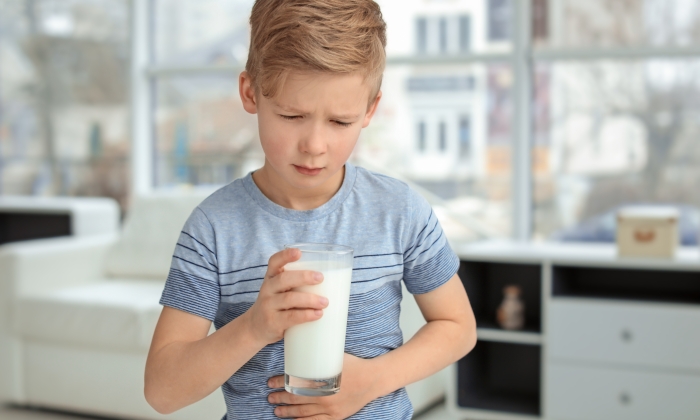
FAQs
What can I do to prevent my child from having food allergies?
While food allergies are commonly considered to be passed down through genetics, exposure to potential allergenic foods early can reduce your child’s chances of developing a food allergy. Try introducing foods like peanut proteins and eggs when your child is around 6 months old.
Can my child outgrow food allergies?
About 80% of children will outgrow their milk and peanut allergies. Allergies to tree nuts, soy, wheat, and shellfish are unlikely to go away as your child grows up.
How can I ensure that my child gets all the necessary nutrients if they have a food allergy?
While a food allergy does make feeding your child more complicated, it does not mean they cannot have a well-balanced diet. Simply eliminate the allergy-causing food and replace it with another nutritious food. For example, fish can be replaced with chicken, and wheat can be replaced by rice.
Can my child participate in sports or other activities if they have a food allergy?
A food allergy should not stop your child from participating in sports or other activities. Even competitive traveling team sports are possible for children with severe allergies, as long as you take precautions to protect them. Make sure your child knows their emergency plan and always has their EpiPen. Talk to their coaches and enlist one of their teammates to be their helper in case of a severe allergic reaction.
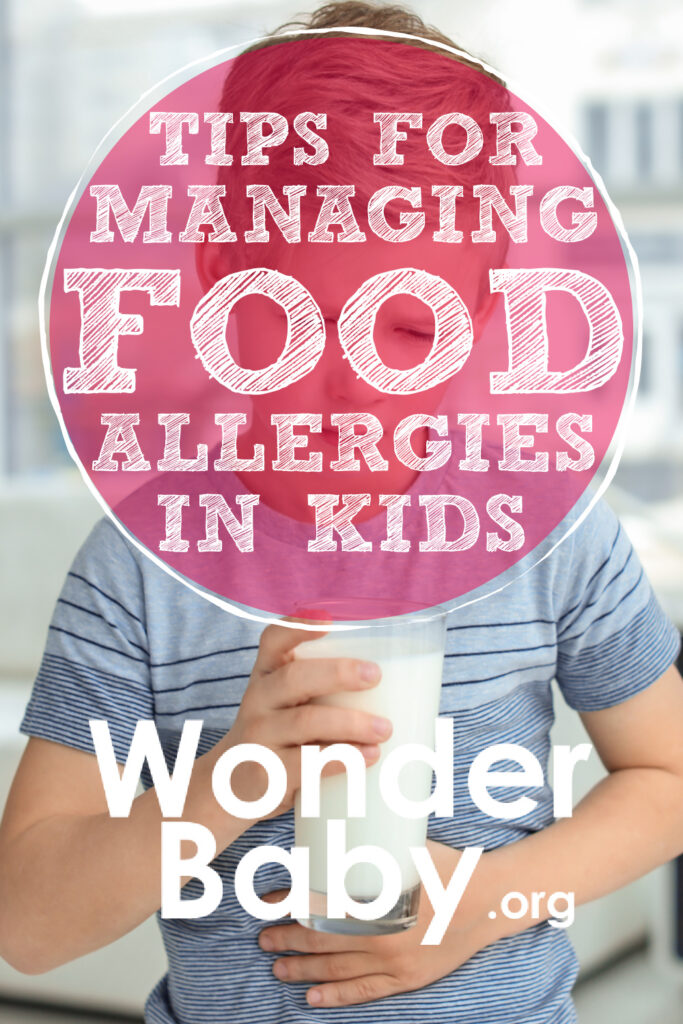
The information WonderBaby provides is not intended to be, and does not constitute, medical or other health advice or diagnosis and should not be used as such. Always consult with a qualified medical professional about your specific circumstances.
Related Posts
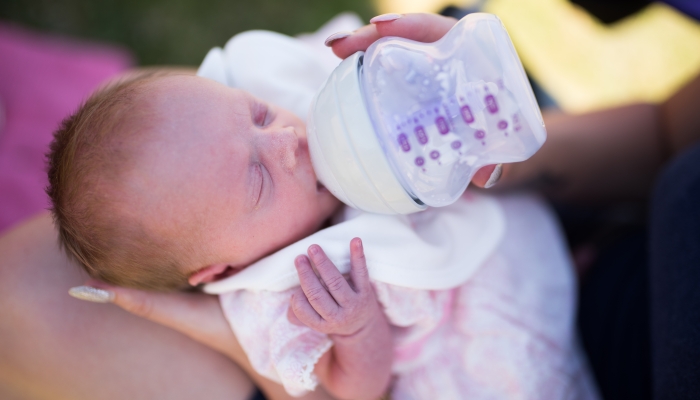
Feeding and Eating, Special Needs
Feeding Therapy Approaches for Infants with Special Needs
Many children with special needs have feeding difficulties. Working with a speech therapist, being patient, and experimenting with textures can help.
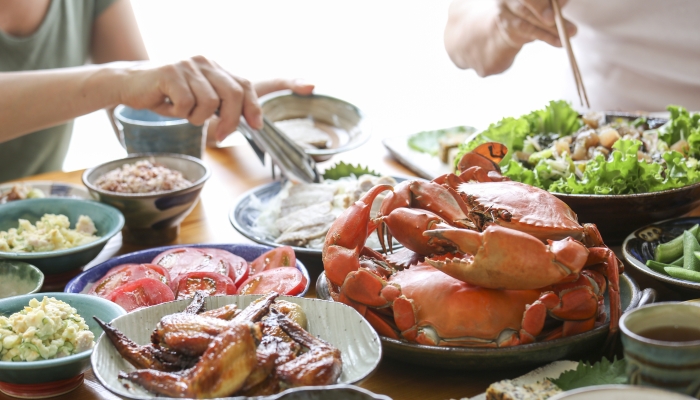
Feeding and Eating
Unexpected Foods That Cause Allergen Cross-Reactivity
A variety of unexpected foods and environmental substances can trigger an allergic reaction through cross-reactivity to food proteins.

Feeding and Eating
Easing Anxiety for Families Facing Food Allergies
Ongoing physical preparations and speaking openly about anxiety can ease the transition from diagnosis to living well with a food allergy.